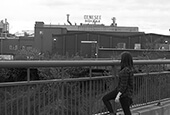Brandin Jones
Interview No. 239
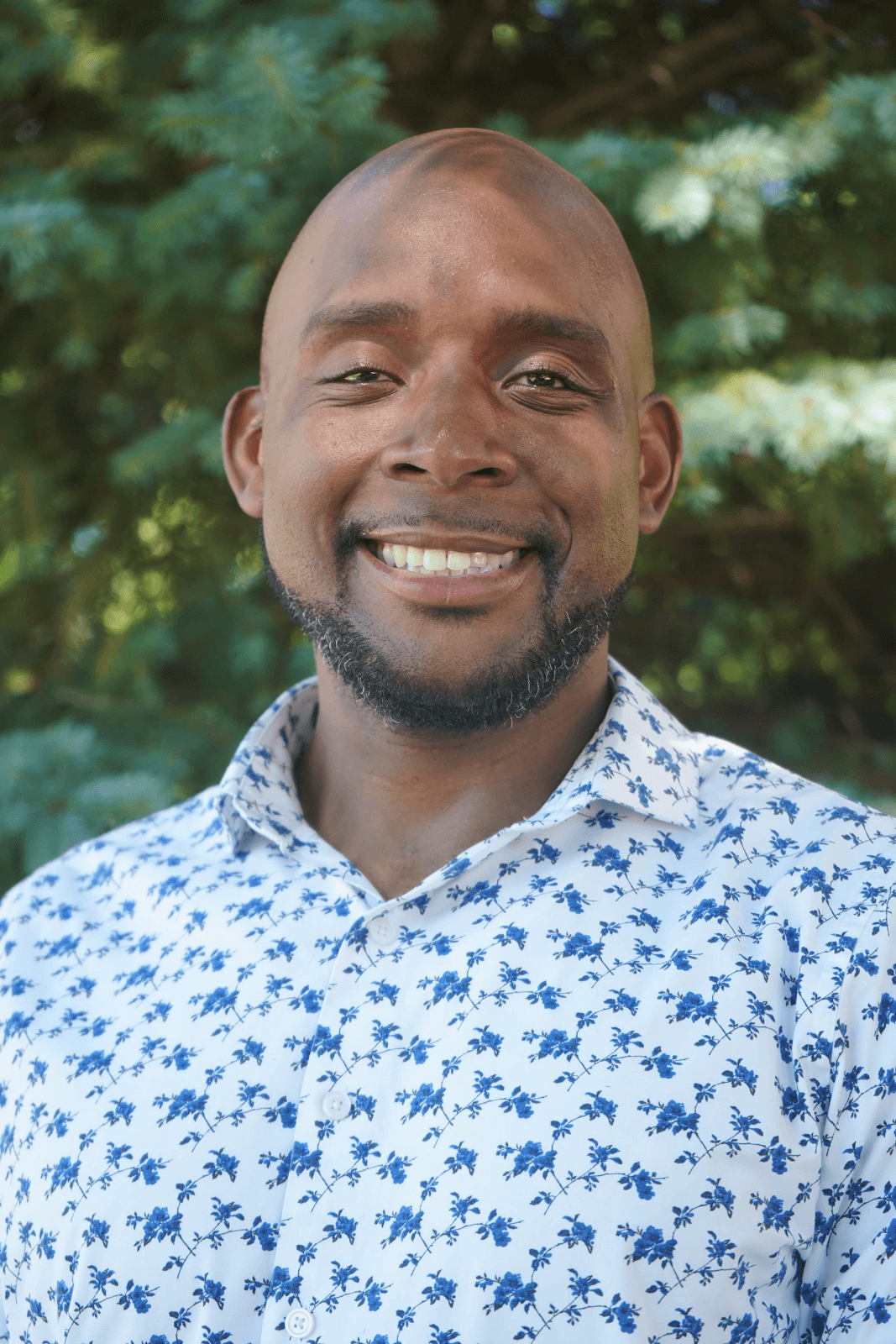

Interview by Emily Hessney Lynch.
Published July 24, 2020.
Where are you from? How did you end up in Rochester?
I’m from Rochester; I was raised in the heart of the city by my grandmother. I graduated from School without Walls and attended Nazareth College, where I studied education and psychology. I worked in RCSD as a special education teacher before becoming a school administrator in Greece.
What drew you to work in education?
Growing up, I had really phenomenal teachers who I felt connected with. When I got to School without Walls, I saw how teaching was done a little differently, connecting with kids and giving them the freedom to express themselves and their knowledge in alternative ways. I thought I could do that if I went into education. Connecting with students and helping them grow is foundational to me, it’s what drives me.
What are some hidden gems you've discovered around Rochester?
I love walking or running along the Genesee River Trail. Before COVID, I never walked or ran outside, but now I do it a lot more. It’s especially nice in the morning when the sun is coming up, there’s a breeze, and it’s not too hot. I love how beautiful Rochester can be from those angles.
Some of my favorite restaurants around town are Ox & Stone, Nosh, Salena’s, and Blu Wolf.
If you had $100 and two hours to kill, how would you spend the money/time in Rochester?
You’d probably catch me eating, drinking, and hanging out with friends in some type of social setting, like at the Forum on University, or enjoying popcorn or nachos at a movie theatre.
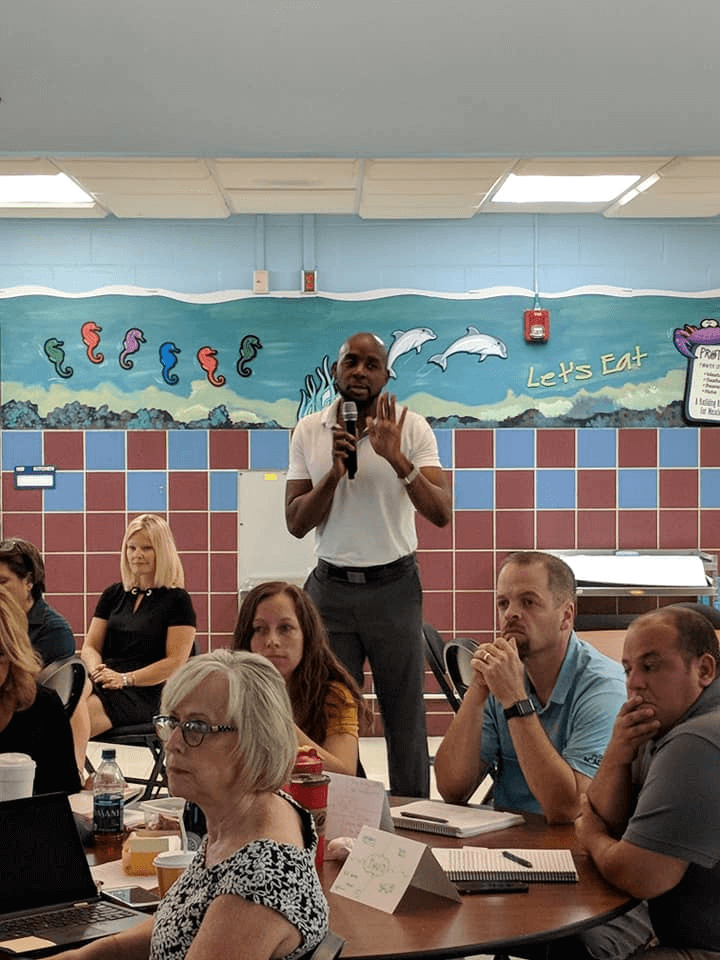

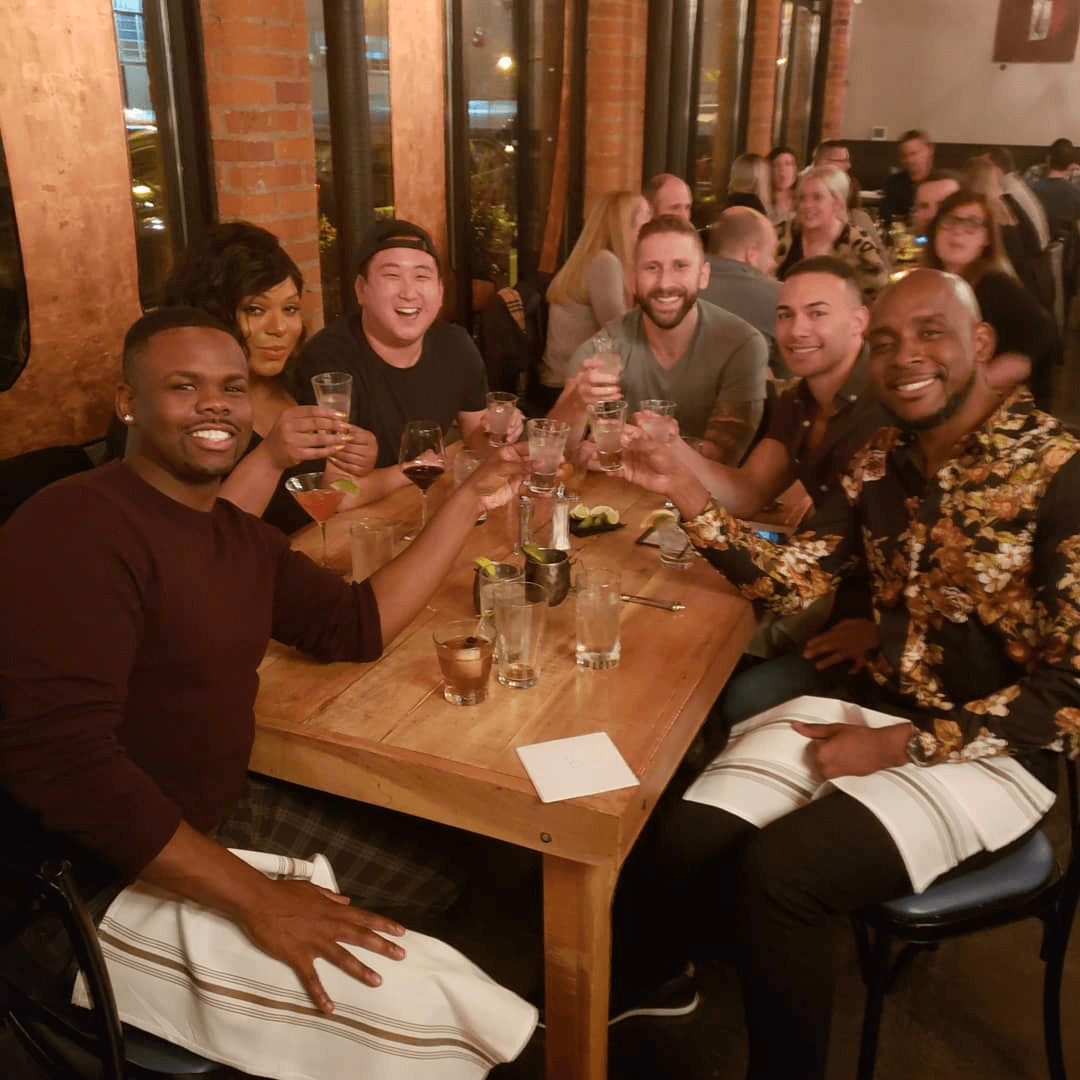

If you could only eat one Rochester food for the rest of your life, what would you choose?
The chicken and waffles at Ox & Stone. Brunch there is the best! The cinnamon waffle is so good.
What's one memory that captures what Rochester means to you?
Recently, one of my neighbors and I were taking a walk on a Saturday. We came across a Black Lives Matter march and joined it. The spirit of the march was really special- there was chanting, drums, and dancing. It was really inspiring. There was an eight minute and 46 second moment of silence at Parcel 5. There was so much power in the whole community being silent, thinking and processing that traumatic event. In that moment, it reminded me of what it means to live in Rochester and be a citizen of this community.
If Rochester was a song, what would it be?
Rochester to me is like a Beyonce ballad. Like a “Love on Top” type of song. Rochester doesn’t have the same energy as bigger spaces, but it gives you what you need when you need it. I don’t always need a “Single Ladies” jam, sometimes I want something more lowkey. Through its different seasons, Rochester gives you that--summer festivals, winter calm, exploring Letchworth, getting out in nature to breathe a little bit.
What makes Rochester unique?
Our history. It’s this history that you can’t escape when it comes to social justice. A lot of things have happened here. Rochester had this golden age, then we lost our footing for awhile. But I see Rochester coming to the surface now. There’s development in downtown Rochester, Black Lives Matter rallies, and conversations around economic development and equality. These conversations are happening in our school districts as well. In the Greece Central School District, we’re trying to change things so education works for all our students, including students of color, kids from a lower socioeconomic status, students with disabilities--so everyone can get what they need to be successful in school and beyond.
Is there any one piece of Rochester history you wish more Rochesterians knew as we undertake this antiracist work together?
The race riot of 1964. We had our Black Lives Matter march and rally about a month and a half ago, then later that evening there was another event with looting that damaged buildings. Seeing the responses on social media, a lot of people said “I got the protest, but why do they have to destroy things?” If we understood our history, Rochester especially, we’d know that what happened a month and a half ago wasn’t in a vacuum. When discrimination occurs, when people are tired of being oppressed, we see this type of behavior. The Rochester race riot in 1964 is significant; it’s a big part of our history that people don’t know.
People want and demand change. We’re a social activist community. When things go south, we rise. Sometimes it’s not comfortable. It’s not always peaceful. When we look back at the race riot in 1964 now, we say “ohhh, they were tired of this.” Tired of being treated poorly. I think 30-40 years from now, people will look back on that night early this summer and think the same thing.
What would you like to see change in Rochester over the next year?
We need to start to take the conversation that’s going on and translate it into policy, across many different systems. Much of the Black Lives Matter conversation has been centered around criminal justice and law enforcement, but it’s also a systemic problem everywhere--healthcare, business, education. I’d like to see these cries for support and attention translate into policy, where we can start seeing results. It’s not about individuals, it’s about the policies that allow for these problems to exist in the first place.
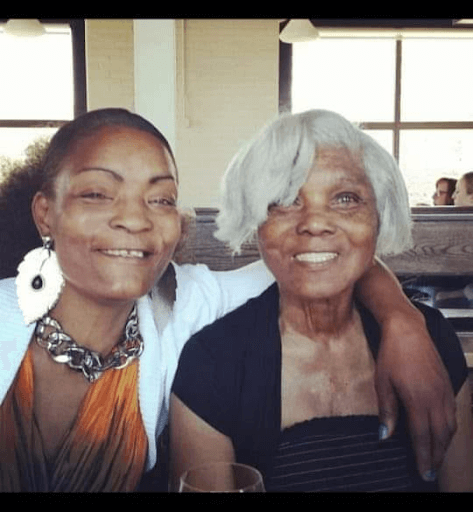

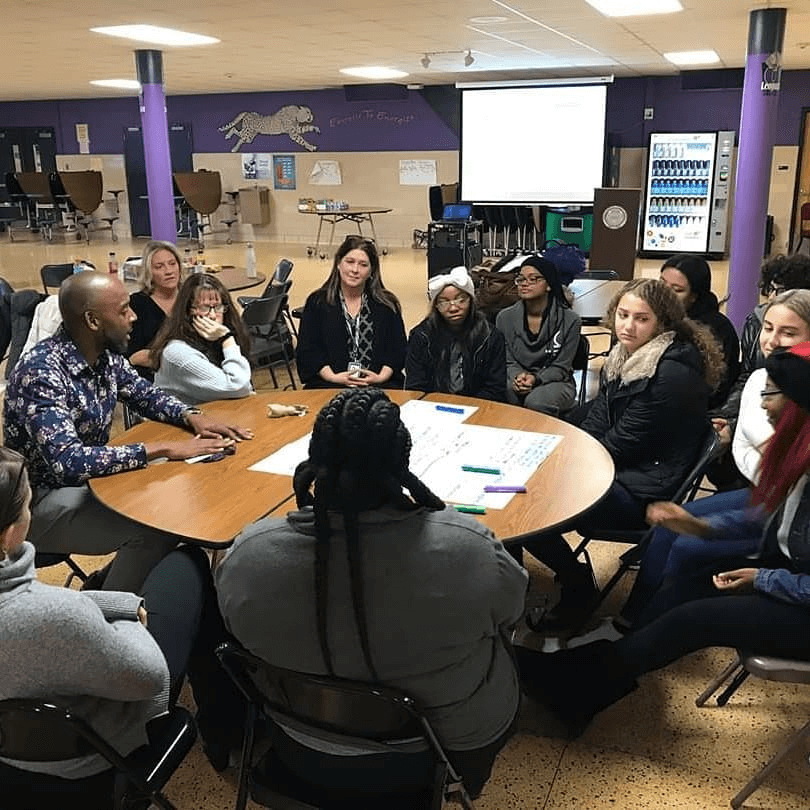

What's a day in the life of an assistant principal like?
I deal with so much in a day, there’s never a dull moment. We’re communicating with families, interacting with students, and dealing with social/emotional needs. I’m in contact with teachers, observing and giving feedback on instruction. A day will fly by!
How has COVID impacted your work?
It came through like a tornado and changed the game. We had to go into crisis learning phase. We had to transition without proper training to this distance model. A lot of families aren’t engaging due to equity and access issues that COVID really shines a light on. When you look at the economic disparities, families are working minimum wage jobs, they’re essential workers, they’re not home to make sure the kids are joining the Google Meet session. Older kids might have to watch younger kids. For the parents that have the luxury of working from home, those kinds are often more engaged. We have to think about how we’re doing school. We want to connect kids to learning so they get meaning from it and are intrinsically motivated. We need to think about the inequities that have been exposed when it comes to instruction, types of students, and how we look at standards. We can’t ignore it.
Tell me about the equity work going on in the Greece Central School District.
In Greece, we’re doing the work to try to make sure our systems operate in favor of all our students. I’m not just a status quo administrator. I’m going on my fourth year in Greece schools; even before I started, Greece had been making conscious efforts to address our barriers to equity, to be culturally responsive, to shift mindsets of leaders and staff members. The rubber really hit the road during my first year. The stars aligned that when I showed up, they doubled down on their conscious effort. All the administrators in every building went through an equity and culturally responsive practices training led by people from NYU. We then had to take that training and turn it into measurable action. We’re in a good space but we’ve got a long way to go. Kids are still being harmed. We have to pick up the pace and figure it out.
Being culturally responsive is about creating school culture and climate. We have a district-level Guardians of Equity, and each building has one too. Those committees review district policy and school policy, determining what’s working and what’s not. The same goes for instruction. How do we shift teacher, administrator, and staff mindsets? There are so many different layers to equity work and we all hold each other accountable.
I’m proud of how Greece is doing this at a systematic level. Some districts just hire a person for equity; we have a Director of Equity, but it isn’t her job to do everything for the whole district. She gives us opportunities to learn and grow. In Greece, our work is proactive, not responsive to some tragic situation. We’ve got some history behind our approach.
Have you encountered resistance to this work so far?
100%. It comes from a lack of understanding. When we talk about racism, people jump to this idea of the 1960s. They think, “I don’t use the N-word, and I have friends of color, so I can’t be racist. There’s misinformation about what we’re talking about. We have to educate. When we do staff development, we’re never just telling people to do something because we say so. We look at the data and get on common ground when it comes to vocabulary. Explaining active racism versus passive or systemic racism helps. Racism is built into our system, so just by functioning and not actively fighting against it, we’re promoting these inequities. We’re talking about changing a system that doesn’t work for all. When you take the time to dig deep, educate, and inform, you can see the shift. People have to personalize it.
I’m at Odyssey Academy; when we started three years ago, there was a lot of resistance. This past school year there was a completely different vibe. We can talk about race, students who are struggling, and inequities. The resistance is now the minority and way more people are onboard to do the work. Those who aren’t are not bad people, they just don’t have a clear understanding of the actual issue and the complexities behind it. We have to shift mindsets and do the work at the same time. If we wait for everyone to get on board, in the meantime, there are lots of kids that are not okay. I want every single staff member on board, but I can’t wait for that to happen. I’ve got to go on the journey and bring as many people along as possible.
What advice do you have for Rochesterians as we grapple with race and inequity and try to make our city better?
Continue to learn. Do not exempt yourself from the work. Never let the work become someone else’s problem to deal with. Personalize it. Whether it’s gender equality issues, sexual orientation, religion, race, ageism--whatever the -ism is, please understand that you have to keep it at the forefront. Make it matter to you and don’t excuse yourself from it.
Brandin Jones is an assistant principal and equity warrior in the Greece Central School District. He also enjoys living downtown and exploring Rochester's food scene. For more of his perspective, visit our Instagram.

